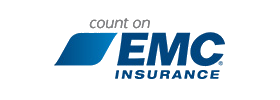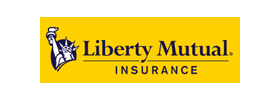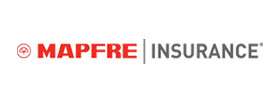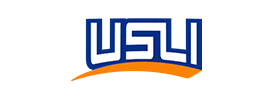We all need auto insurance but how much do you really know about it? Read on as we take a look at everything you need to know about auto insurance.
Approximately 13% or 1 in 8 drivers in the United States have no auto insurance. This serious mistake can leave them with major legal, medical, and/or repair bills to pay if an accident or other incident occurs.
Almost every state has its own set of laws about how much and which types of auto insurance drivers need to maintain. Knowing these ahead of time helps you keep your vehicle on the road and avoid penalties like fees and license suspensions.
Auto insurance costs continue to rise, but there are ways to fight back. Experienced, knowledgeable drivers get the best insurance at the most affordable price. Read our guide for all the auto insurance facts you need to know.
Getting Auto Insurance
Every vehicle on the road today, whether it’s used for commercial or personal purposes, needs to have an auto insurance policy connected to it. Each state has its own minimum required policy amounts, which you should know before making a purchase, but doesn’t offer much protection.
If you get into an accident you’ll need to show the officers that you have the required minimum policy. This is why you must provide proof of insurance when registering any motor vehicle. It must include:
- Policy Holder’s name & address
- Description of the insured vehicle
- Effective dates of coverage
- Liability limits
- Insurance Company & Agent contact information
This documents prove that you have the required amount of insurance in your state.
Types of Auto Insurance
There are a couple different types of car insurance policies, personal or commercial auto. Coverage will vary greatly depending on which type of policy is needed.
Personal vs. Commercial
An important distinction to make is the difference between personal and commercial auto insurance. They cover different vehicle usage and are therefore rarely interchangeable.
Personal auto insurance is typically for vehicles you drive every day, whether commuting to and from work or school, or used for pleasure and running errands.
Commercial auto insurance covers vehicles used to complete business functions. This can include delivery trucks, or even vehicles with business advertising on them. If you run a business, you likely need a commercial auto insurance policy.
Your agent will be able to determine when a commercial auto policy is necessary.
Required Coverages
Most states require bodily injury liability coverage. This type of insurance is so important because of what it covers. It pays for almost all costs related to car accidents, including:
- Medical treatment
- Rehabilitation
- Funeral costs
- Lawyer’s fees
- Losses for pain and suffering
This coverage applies to injury to others as a result of an accident. There are usually minimum amounts you must purchase in each state, but obtaining higher limits is often a good move. The average bodily injury coverage is $100,000 for every person injured, with a maximum bodily injury limit of $300,000 per accident.
Property damage liability handles the costs of other people’s property, whether their vehicle, home or business. It helps cover the cost of repair and, or replacement. The average state limit for property damage is $15,000, but $35,000 is closer to the actual cost of the average new car. Your liability for damage to property adds up quickly after an accident.
Uninsured or underinsured motorist insurance covers most of the same things your bodily injury liability to others does. The difference is that it applies when you get in an accident with a driver who has no insurance, or your damages exceed their limits of coverage. Your limit of coverage should equal the amount of your bodily injury to others.
Potentially Required Coverages
PIP or personal injury protection is also known as no-fault insurance. It covers medical, rehab, and funeral costs for anyone in your household when an accident occurs. It also includes lost wages and in-home care. It is a requirement in some states, and an optional add-on in others.
States with no-fault insurance include:
- Delaware
- Florida
- Hawaii
- Kansas
- Kentucky
- Maryland
- Delaware
- Florida
- Hawaii
- Kansas
- Kentucky
- Maryland
- Massachusetts
- Michigan
- Minnesota
- New Jersey
- New York
- North Dakota
- Oregon
- Texas
- Utah
- Washington
While some states require PIP, other states use a tort system of liability where the amount you’ll pay after an accident depends on who the court of law determines is most at fault in an accident.
Collision and comprehensive coverage are only required if you’ve bought your car with a loan. However, they are beneficial to anyone who has monetary value in their vehicle.
Collision coverage pays for the cost of repairing or replacing a vehicle after an accident. Comprehensive coverage handles other types of damage such as theft, fire, water, or natural disasters/ weather.
78% of drivers purchase comprehensive coverage, and 74% get collision coverage. This makes them the most popular non-required coverages in existence.
You can choose your deductible for both collision and comprehensive coverage depending on what is available. Deductibles range from $250 to over $1,000. The lower your deductible, the higher your premium.
Non-Required Coverages
There are types of auto insurance coverage that your state may not require, but still offer valuable protection. They include medical payments, towing and labor, rental reimbursement, and glass coverage.
Medical payments coverage covers medical costs from a car accident, including funeral and rehabilitation costs. This is a no-fault, no deductible coverage, and is often used to help offset incurred expenses after an accident.
Towing and labor coverage pays for tow trucks if your car is undrivable after a covered accident, but is also used in traditional roadside assistance scenarios (fuel, fluid, lockout etc).
Rental reimbursement provides a temporary substitute until your vehicle is repaired or replaced.
Glass coverage is another optional but valuable coverage. Full glass coverage is used for headlights and taillights, or any other glass surface on your vehicle.
What Do I Need?
The type of coverage you’ll need to include as part of your auto insurance policy depends on your unique situation. This will be addressed as part of your personal consultation with our agency.
Cost of Auto Insurance
The national average for full coverage car insurance is $1,738 per year. Several factors can drive the prices up or down, including state regulations of coverage and competition amongst auto insurance companies
One of the most expensive places to get a policy is Detroit, Michigan. Where the average premium is well north of $5,000 for the year. One of the least expensive places is Bridgewater, Maine, with an average premium of $993 per year.
Auto policy prices are determined by underwriting and rating. Auto insurance companies assess a driver’s level of risk based on factors such as location, age, gender, vehicle make and model, and driving and credit history. Actuarial Science is very exact, and is how insurance companies determine what rates to file with the state regulatory board.
There are also ways to reduce your costs. Combining your homeowners and auto insurance policies can reduce premiums by 15%. Other ways to save include:
- Reducing the number of claims you file
- Driving safely
- Purchasing a vehicle that’s affordable to insure
- Maintaining positive driving and credit records
- Record all possible information when accidents occur
One of the best ways to ensure you get the most affordable and complete policy is working with an independent agent representing multiple companies.
Finding Auto Insurance
Purchasing any type of insurance is a complex process, and this applies to auto insurance as well.
Each state has minimum requirements, and while maintaining the minimum level of coverage will keep your vehicle legal, you should consider more than the minimum. Our agency will help guide you through this process.
Gessel & Associates Insurance provides coverage for all of your auto, home, or business needs. Contact Us to get the best auto insurance policy for your needs today.


































